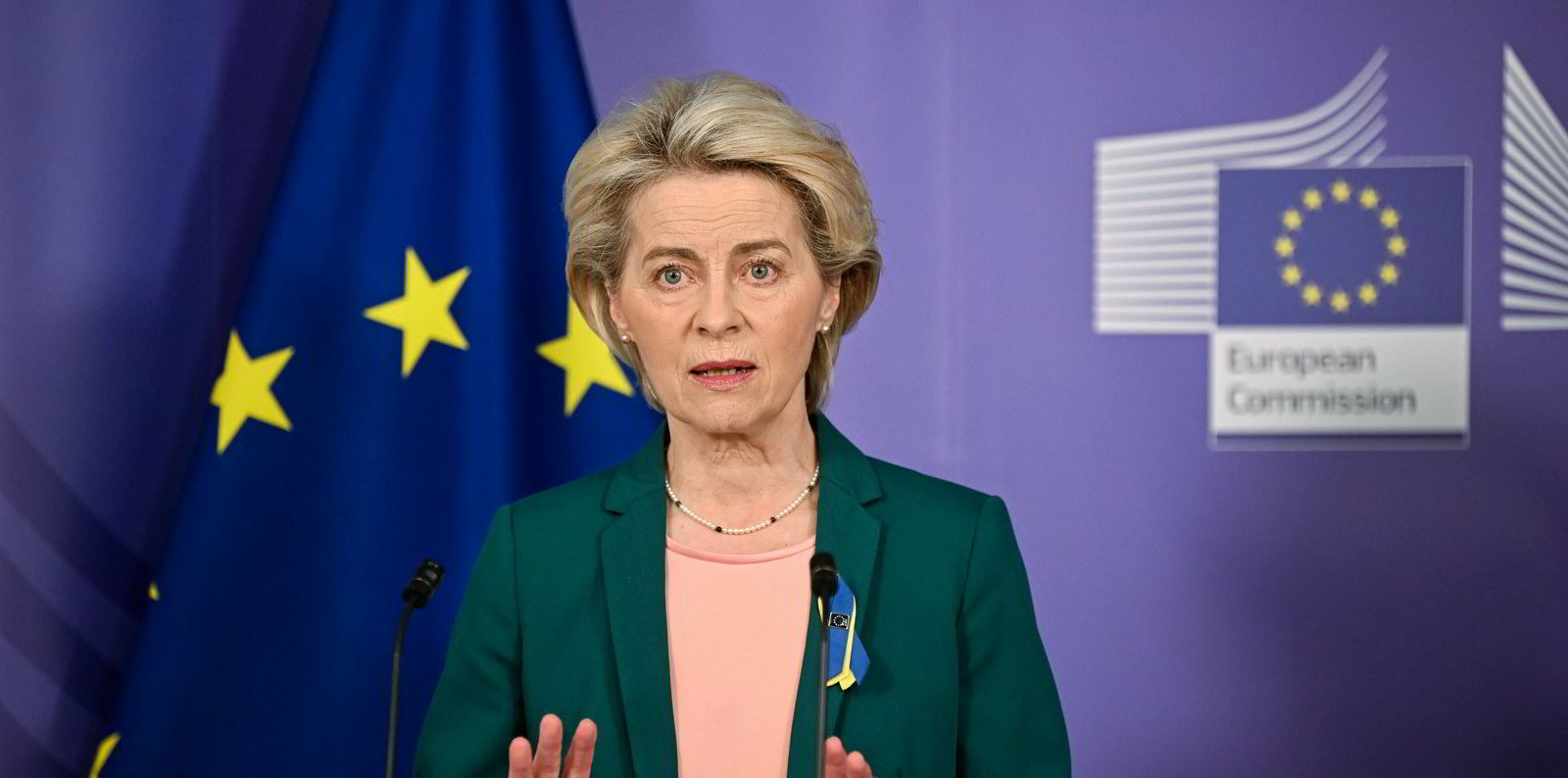European Union countries will discuss a formal proposal to ban imports of crude oil from Russia in six months and of oil products by the end of 2022.
The measures are included in a sixth package of sanctions against Russia unveiled on Wednesday by the European Commission — the EU organ in charge of drafting and executing the bloc’s decisions.
EU member states will have to formally sign off on the proposals before they take effect and have the right to modify them.
“Today, we propose to ban all Russian oil from Europe,” EC president Ursula von der Leyen told European Parliament.
“This will be a complete import ban on all Russian oil, seaborne and pipeline, crude and refined... we simply have to do it,” she added.
The proposals include long transitional periods to give EU nations more time to manage the changes.
“Let’s be clear, it will not be easy because some member states are strongly dependent on Russian oil,” she said.
“We will make sure that we phase out Russian oil in an orderly fashion in a way that allows us and our partners to secure alternative supply routes and at the same time be very careful that we minimise the impact on the global market,” von der Leyen said.
“To help Ukraine, we have to make sure that our economy remains strong,” she added.
According to a news dispatch by the state-run German news agency DPA that cites “several officials”, wide-ranging exceptions to the oil embargo apply only to Hungary and Slovakia, two land-locked EU countries that are particularly dependent on Russian oil.
Also according to the DPA report, a distinction will be made between Russian oil imports via pipeline or ship.
De-Swifting Sberbank
The measures also include banning three “systemically critical” Russian lenders from the Swift payments system, including the biggest — Sberbank — which controls more than one-third of the country’s banking system.
“We finally de-Swift Sberbank,” said von der Leyen, adding that the move will deal a heavy blow to Russia’s financial system. She did not name the other two lenders sanctioned.
Several EU policymakers have said recently that an embargo on Russian oil was likely by the end of the year to punish Russia for its invasion of Ukraine.
Natural gas, however, is a different story, given Europe’s particularly high dependency on it.
The EU last month decided to stop Russian coal imports after a transitional period of a few months and barred Russian ships from accessing EU ports.
Ukraine President Volodymyr Zelenskyy, however, had been pushing the bloc to go further and hamper Russia’s war effort by stopping tankers from carrying Russian oil.



